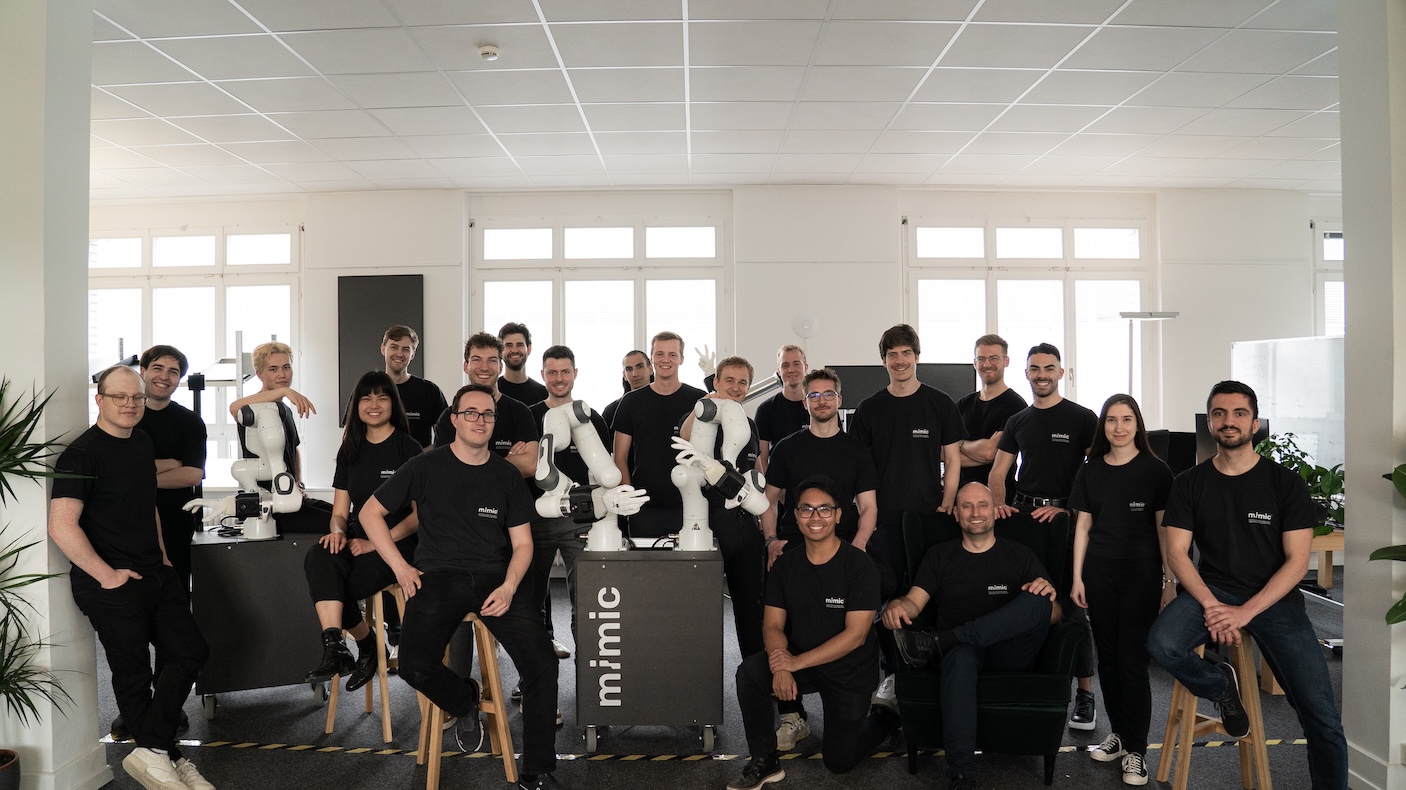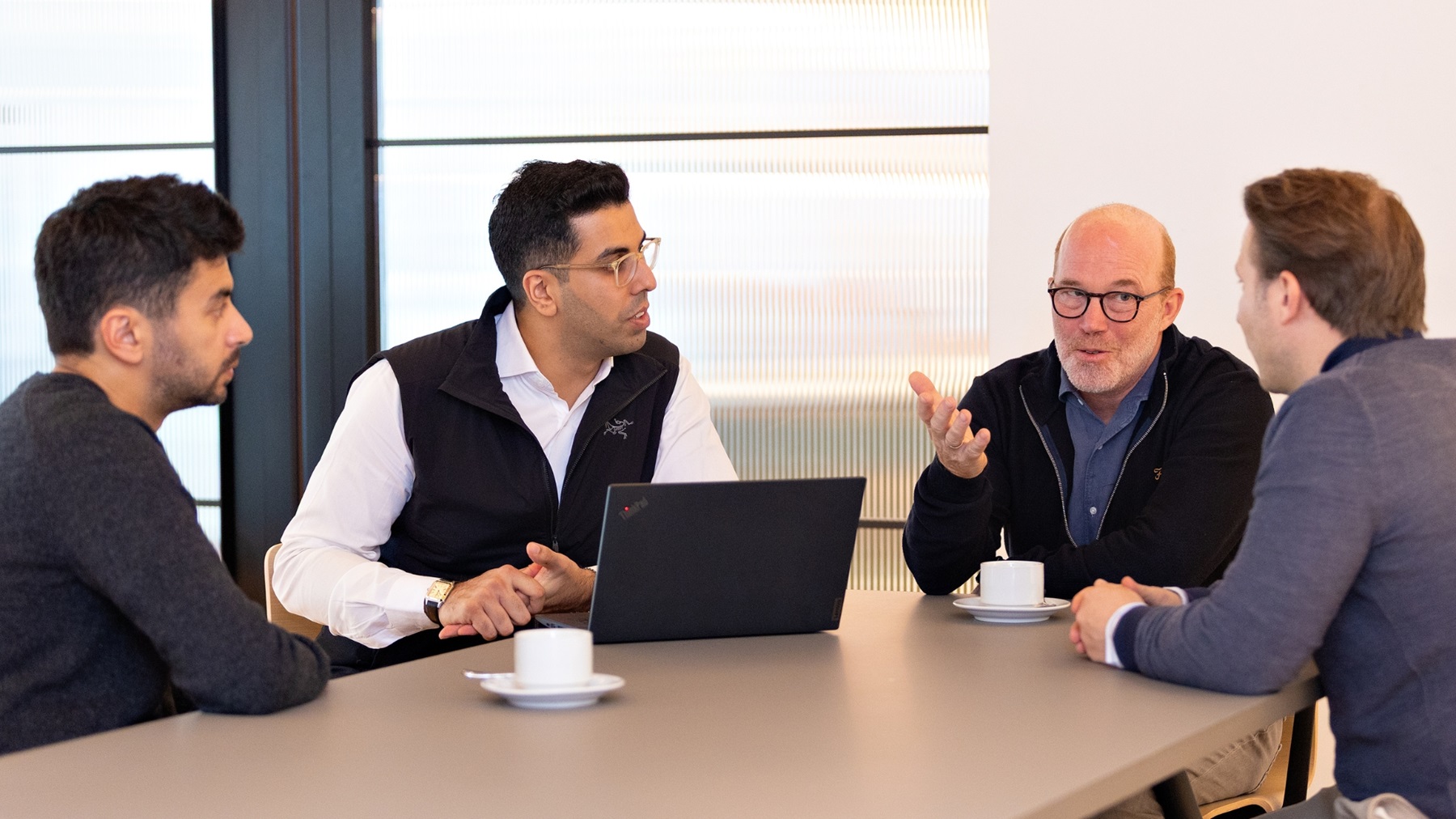The Benefits of Coaching for Early-Stage Startup Founders
Professional coaching is one of those investments many startup founders view as a ‘nice to have,’ but it’s often not a priority because of busy schedules and/or limited financial resources.
But what if the solution to a busy schedule or limited financial resources was professional coaching?
A study from the digital coaching platform, CoachHub, revealed that their virtual coaching led to a wide range of ROI from 37% to 790%. Soft skills development, for example, such as agility and resilience, can result in a 256% ROI for companies, while companies that invest in employee well-being can see a 250% ROI. That’s a measurable impact for any fledgling startup, something that Dr. Tünde Erdös is happy to share with her clients.
Vienna-based Dr. Erdös is a certified executive coach and organizational supervisor with a PhD background in Business and Organisation Management. She’s been researching and practicing in this space for more than 15 years. In 2023, she was honored in the United States with the International Coaching Federation’s Coaching Impact Award, acknowledging her role in upholding the highest standard of excellence towards social impact in the profession. She’s also active in charitable work, including funding coach training for women in Kenya to empower them in their entrepreneurial activities.
Considering the apprehensions some founders have about investing in coaching, we reached out to Dr. Erdös to break down the effectiveness of coaching. In our conversation, we discuss what topics founders can get support with, the proven benefits of coaching, and what founders can do to get started, even without a coach.
Watch our full conversation in the video above or read a lightly edited version below.
On what topics can a professional coach support early-stage startup founders?
Some topics are very straightforward. Some are less straightforward topics. One of those straightforward topics is performance increase to end-goal attainment and finding one's purpose. Some less straightforward topics are getting unstuck and moving beyond goal attainment towards more meaningful business development and leadership.
Professional coaching can include inspiring higher engagement. It can move to more complex topics around more effective self-leadership to cope with complexity, culturally rich teams, and peers. Stakeholder management is also a big topic in internationally acting dynamic environments. And, professional coaching can also include dealing with high-level pressure.
Does a founder have to have a specific area of concern or need to start coaching? Or can the coach help a founder determine the areas to focus on?
It can be either or both or more. It may be more difficult to deconstruct people when they come to coaching with some preconceived ideas about what they want to work on. But it doesn't mean that people aren't welcome to bring up a topic. Either way, the only thing that you need to do is bring readiness to be invested in yourself. Be curious about some self-discovery. Where can you raise awareness about yourself or about what you're doing – especially when you’re in leadership –– to become more effective and have fun along the way? We’re all working so hard!
Sometimes, the most telling coaching conversations will happen when people come actually ‘undone’. So bringing only their interest in having a genuine conversation about something that matters to them most, but not really having any preconceived ideas.
Before the first session, what do you recommend a person does to prepare so they get the most out of it?
I used to give recommendations for how to prepare when I was a novice. I think it was more about me feeling safe and getting prepared for those sessions. Today, I prefer discovering together with my clients what might be good to prepare, if at all, which saves time and energy. This allows us to be more effective and efficient in the first session, and it's more fun. We start co-creating the topic together.
Clients always bring their whole self to the table. So, what’s the point in ‘getting prepared’ for self-discovery?
How important is good chemistry with a coach, and what should you do if the chemistry isn’t right?
Good chemistry used to be the key factor in the effectiveness of coaching, until just recently. It’s still an important factor, for sure. But it's not the most important factor.
It's very important to have a good working alliance. But it doesn't do the ‘trick’ because it’s just one of the many factors that make up a good working alliance –– another one of which is the consistency of the coaching work. So, really having regular conversations, conversations that are authentic about the topic that somebody's interested in.
Yet another one is a readiness to invest oneself. I like saying that coaching isn’t a picnic in the park. When we come to self-discovery, it may be very uncomfortable to do so because there may be something we discover that we may not like to look at.
So, of course, chemistry is important for those moments. But at the same time, when a coach or client finds that there’s no good initial chemistry, they may be actually curious about that. Because when there’s no chemistry, it doesn't mean that the coach is crap, for instance. The irritation that the client may have with the coach can be valuable information that can be used for the client to learn about himself or herself through the coaching relationship.
The coach is just a symbol, if you will, potentially representing somebody else from the client’s perspective. So, if somebody doesn’t sense some good chemistry with the coach –– that's already coaching material.
What else is required to ensure maximum benefit from coaching?
Be very honest. Clients need to allow themselves to see coaching as an investment in themselves, something worthwhile for life. Don’t just make it about goal attainment. This is about holistic development with lasting impact. When we develop in one field in our life, that will ripple over to our professional life, and vice versa.
CEOs and company leaders are very busy people. Why should they take time from their schedules for professional coaching? And how often and how long should they continue coaching?
I think being busy doesn’t mean being really productive or effective. The more important question for me is: How do others around us feel about us and our leadership? What is the impact that we want to make and leave behind for other people?
When we’re caught up in this idea of being busy, I call that a limiting belief. I encourage people to think beyond that belief. Ask yourself, “Is this how I want to spend my life? Being busy?” And then what?
Instead of saying ‘I’m busy, I’ve no time for coaching’, ask yourself: “How can I make myself as a leader more relevant, just beyond being busy?”
Are there proven benefits of professional coaching in terms of business results and personal well-being? If so, what are they?
It’s out there in literature everywhere. There’s been a lot of research done on this topic that shows that coaching is effective and worth an investment.
And just recently, I've seen a paper about a 250 percent ROI, in terms of leaders becoming more effective through gaining higher serenity in the face of a world that is brittle, anxious, nonlinear, and incomprehensible, also known as BANI. And that’s effectiveness in terms of being more powerful, being able to go against the grain, being more credible, which is likely to feed into others’ engagement and leaders experiencing real, true success –– not just in terms of money and cash.
All this awareness can help us to engage more and engage other people because it's an energy that other people pick up on very fast. And when people experience a leader's positive and engaging energy, they become engaging themselves and feel empowered. And, that seems to be important because there's a lot of talk about empowering others today.
The ROI can also consist of effectively dealing with change and role modeling coping with change, which I think is very, very important for long-lasting impact beyond mere financial growth. If that's what leaders care about, of course.
What are some specific examples of benefits a founder received from coaching with you?
I would like to share an example that might seem paradoxical, but, for me, it's not. So what I'm seeing with founders, C-suite leadership, and people who are really charged with a lot, is not a lack of goal and result orientation, but too much of it. And then of course, as a result, leaders will end up losing peers as well as peers’ and boards’ engagement with them.
Through the coaching experience, they start making sense of how to engage upward and downward –– not just to lead downward, but also to see what it takes to lead upward –– more senior leadership, peers, clients, and customers.
This element of covering both ends, upward and downward leadership –– and even lateral leadership –– as something that is shared, a shared way of doing it together, goes beyond the idea of ‘I'm the leader’. It’s more about ‘I'm doing something upward, downward and laterally.’ And through this, it’s about discovering real meaningfulness for their position, seeing that they’re more than their roles, and learning to detach from goals without risking results and their impact.
The outcome of coaching is that those goal-driven clients cultivate a relaxed, more inspiring and self-fulfilled leadership style that has a ripple effect on others in all directions.
Eventually, they can feel what it’s like to be a human being participating in life fully, not just being a productive machine for financial results.
What do you say to founders who don't want to make the financial investment into professional coaching?
We spend so much money on so many things that we don't need in life. When I hear people say, “I don't have money for this,” I ask them to wonder about what they spend money on. What if investing in coaching is the thing to have that money they don’t have? What if people saw coaching as an investment with that 250 percent ROI? What else would they be willing to not spend money on to afford this investment?
There's no black and white for this money question. We're always making choices in life. So it’s about creating consciousness about how you’re spending your money and thinking about ‘What if making this very investment into professional coaching would get me that money that I don't have right now?’
Are there any steps a founder can take individually if they truly don't have time or money to hire professional coaching?
Look beyond the obvious. See reality from a different angle.
The way we engage through our sensory capacities with the world is going to drive our decision-making with anything. What if a decision that was made too fast is going to make you lose more time because you’ll have to redo that decision?
My point is to look beyond the obvious because we’re full of biases. And biases can block our capacity to make the best possible decisions, particularly when in the world we call BANI.
Want more updates on our portfolio? Sign up for our monthly newsletter and follow us on LinkedIn.












.svg)
